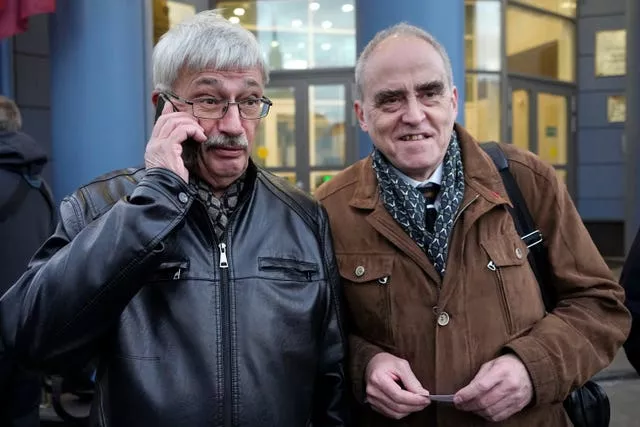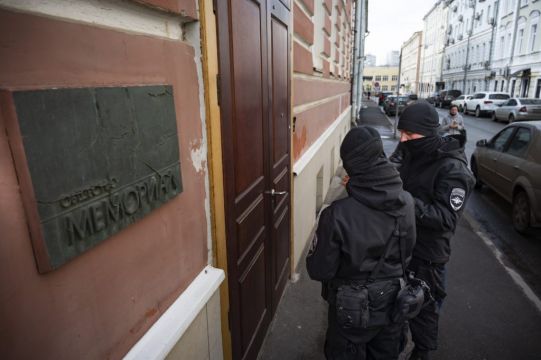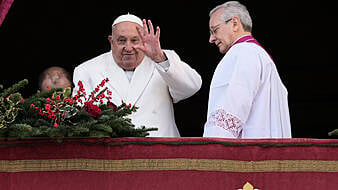Russian authorities have raided the homes and offices of human rights advocates and historians with the prominent rights group Memorial which won the Nobel Peace Prize last year.
The wave of searches, after which police took Memorial activists in for questioning, is part of a sweeping crackdown unleashed by the Kremlin against dissent in recent years, which has intensified after Moscow invaded Ukraine more than a year ago.
The group said the raids and the interrogations are connected to a criminal case launched by Russia’s Investigative Committee against the activists earlier this month.
The investigation was opened on the charge of rehabilitating Nazism, punishable by up to five years in prison.

Memorial runs a database of victims of political repressions, which includes three people who were convicted in Soviet times over collaboration with Nazi Germany.
The group said authorities are using those names on the list in their case against Memorial.
Oleg Orlov, the group’s co-chairman whose apartment was among those searched, told reporters the allegations were “idiotic”, before being hauled into a police station by a masked officer in a bulletproof vest.
Later on Tuesday Memorial reported that the authorities had launched a separate criminal case against Mr Orlov on charges of repeatedly discrediting the Russian army.
It is a criminal offence under a new law adopted after Russia sent troops into Ukraine and is regularly used against Kremlin critics.
Mr Orlov faces up to three years in prison if convicted.
The 2022 #NobelPeacePrize laureate and human rights organisation Memorial, @MemorialMoscow, was established in 1987 by human rights activists in the former Soviet Union who wanted to ensure that the victims of the communist regime’s oppression would never be forgotten. pic.twitter.com/aQGi09tAwv
Advertisement— The Nobel Prize (@NobelPrize) October 7, 2022
Memorial, one of the oldest and the most renowned Russian rights organisations, was awarded the 2022 Nobel Peace Prize along with imprisoned Belarusian activist Ales Bialiatski and Ukrainian organisation the Centre for Civil Liberties.
Memorial was founded in the Soviet Union in 1987 to ensure the victims of communist repression would be remembered. It has continued to compile information on human rights abuses and track the fate of political prisoners in Russia while facing a relentless crackdown from the Kremlin in recent years.
The group had been declared a “foreign agent”, a designation that brings additional government scrutiny and carries strong pejorative connotations, and over the years has been ordered to pay massive fines for alleged violations of the “foreign agent” law.
Russia’s Supreme Court ordered it shut down in December 2021, a move that sparked an outcry in Russia and abroad.
Tuesday’s raids came after President Vladimir Putin called on the police to “harshly suppress any attempts of the adversaries and their agents on the territory of our country to rock our society”.
The action against Memorial elicited outrage among Russian opposition figures. Dmitry Gudkov, a Russian opposition politician in exile, called it “an act of intimidation”.
“You give them the Nobel Prize, we give them a criminal case,” he wrote on Facebook.
“Terror. The very terror, the memory of the victims of which is preserved by Memorial,” Mr Gudkov added.







